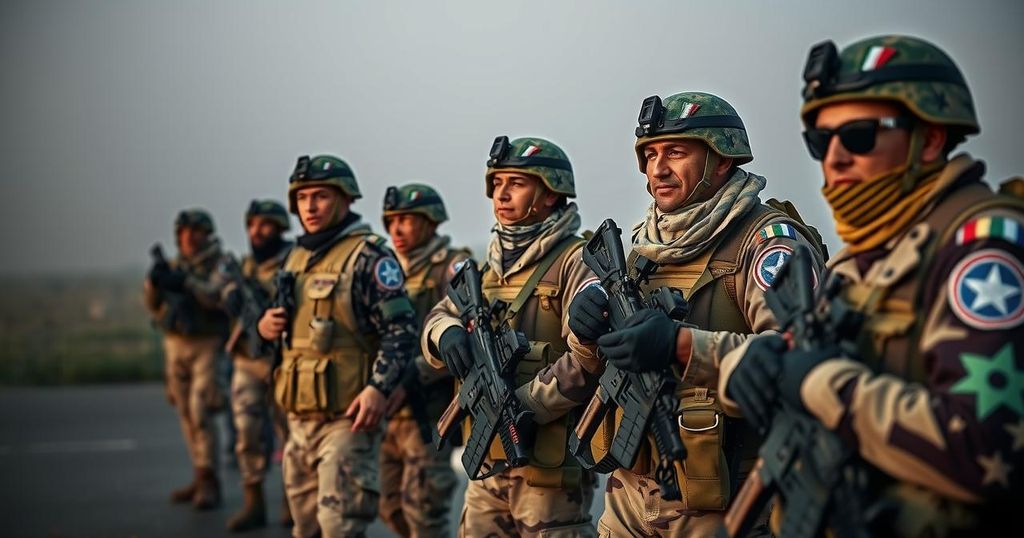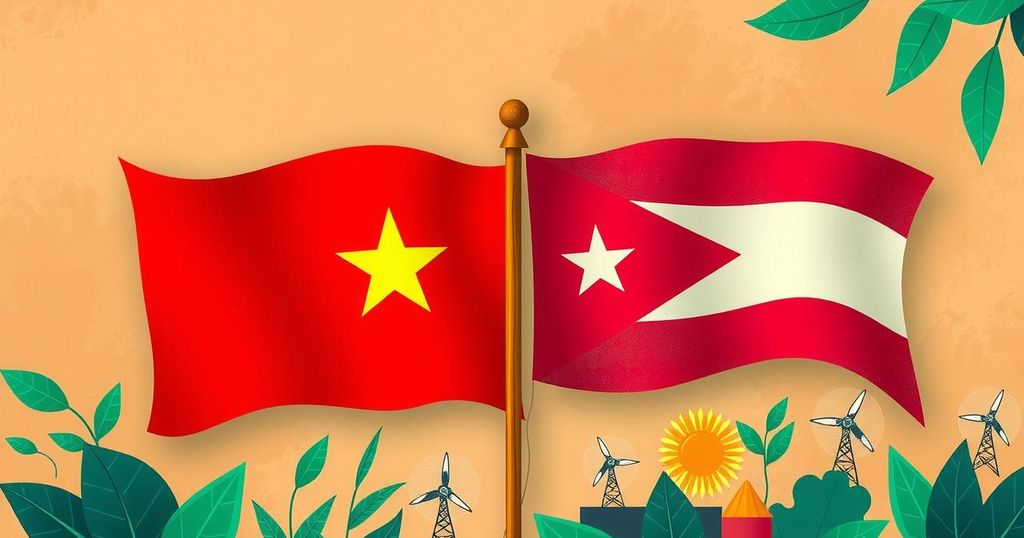Iran’s Support Transforms Yemen’s Houthi Rebels into a Powerful Military Force
United Nations experts report that Yemen’s Houthi rebels have transformed into a potent military force with substantial foreign support, primarily from Iran and allied militia groups. The Houthis have escalated maritime attacks, claiming numerous vessels, and have intensified child recruitment efforts amidst the ongoing civil war in Yemen, exacerbating the humanitarian crisis.
A recent report by United Nations experts reveals a significant transformation of Yemen’s Houthi rebels, who have evolved from a localized armed faction with minimal capabilities into a formidable military force, largely due to support from Iran, Hezbollah, and various Iraqi armed factions. The Houthis have seized the opportunity presented by the ongoing Israel-Hamas conflict to bolster their status within Iran’s so-called “Axis of Resistance,” thereby enhancing their regional appeal. The report indicates that the Houthis have escalated attacks on vessels within key maritime routes such as the Red Sea and the Gulf of Aden, targeting indiscriminately, despite claims of targeting Israeli-linked ships. From November 15, 2023, to July 31, 2024, around 134 incidents were reported involving attacks on merchant vessels, commercial shipping, and allied warships, marking an unprecedented level of aggression at sea since World War II. In their military actions, the Houthis have employed a new ballistic missile system, named the Hatem-2, illustrating their expanding capabilities bolstered by sophisticated weaponry and training provided by Iranian military personnel and associated allies. The total number of fighters within the Houthi ranks is now estimated at 350,000, markedly increased from 30,000 in 2015, underscoring their military evolution. The panel of experts emphasized the role of Iranian military aid, specifically referencing the contributions of the Iranian Revolutionary Guard’s Quds Force and other allied militias, in enabling the Houthis to acquire advanced weaponry, including drones, missiles, and air defense systems. The Houthis have further coordinated with groups such as al-Qaida, showcasing a concerning trend of collaboration between various militant factions in the region. Amidst this military landscape, the Houthis have intensified recruitment efforts targeting vulnerable populations, including children, in a civil war that has been raging since their takeover of the capital, Sanaa, in 2014. Reports indicate that the group has mobilized children as young as ten years old into their ranks, often against parental consent, and utilized them in combat roles and other military-support activities, exacerbating the humanitarian crisis in Yemen.
The situation in Yemen has deteriorated significantly since the onset of the civil war in 2014, which erupted as the Houthis gained control of the capital and vast northern territories. The conflict, initially domestic, has drawn in various regional players, intensifying tensions and complicating efforts for resolution. Iran’s involvement has been particularly pronounced, with reports of military support and strategic partnerships emerging as key factors in the Houthis’ transformation into a robust military faction. Understanding the geopolitical implications of this support necessitates a broader view of Iran’s broader strategy in the region, particularly in light of its support for other militant groups within its so-called “Axis of Resistance.”
In conclusion, the evolution of Yemen’s Houthi rebels from a local militia to a powerful military force underscores the significant impact of foreign support, particularly from Iran and its allies. Their mounting aggression, particularly against maritime vessels, and the alarming recruitment practices involving children and marginalized groups further illustrate the complexities of the ongoing conflict. The situation poses a significant threat not only to Yemen but also to regional stability, demanding urgent attention from the international community to address both the humanitarian and security challenges at hand.
Original Source: apnews.com




Post Comment